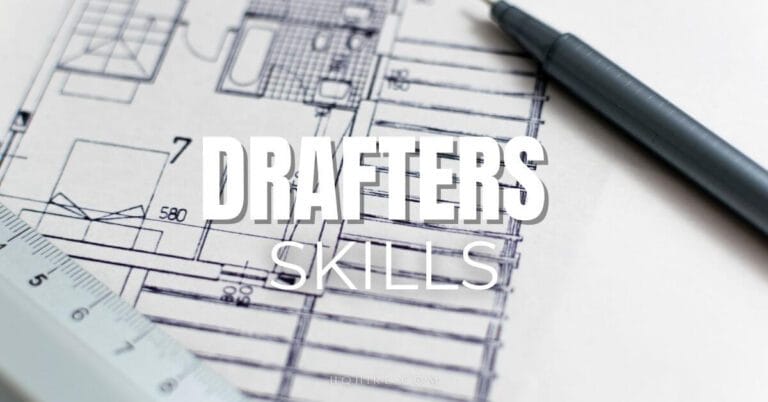Architecture is a multifaceted profession that requires a diverse set of soft skills and hard skills for success. Beyond the technical aspects of design and construction, architects must possess a range of interpersonal and professional skills to thrive in their careers.
In this article, we will explore the critical skills that architects must develop to excel in their field. We will dive into both the interpersonal skills that enable effective communication and collaboration, as well as the professional skills necessary for technical competence and problem-solving.
Interpersonal Skills for Architects
Effective Communication
- Architects must be adept at both verbal and written communication. Clear articulation of ideas, instructions, and design concepts is crucial in conveying the vision to clients, contractors, and team members.
- Active listening is vital for understanding clients’ needs and preferences, ensuring their satisfaction with the final design.
- Presentation skills are essential for effectively communicating design proposals to clients and stakeholders, using visual aids and persuasive techniques to convey the architectural vision.
Collaboration and Teamwork
- Architects work closely with clients to translate their vision into tangible designs. The ability to establish rapport, empathize with clients, and understand their goals is crucial for successful collaborations.
- Coordinating with contractors and engineers is essential to ensure that designs are executed accurately and efficiently. Architects must collaborate effectively, demonstrating leadership while respecting the expertise of other professionals.
- Collaboration with fellow architects on larger projects requires a spirit of teamwork, shared responsibility, and the ability to integrate diverse ideas into a cohesive design solution.
Leadership
- Architects often take on the role of project managers, overseeing every aspect of a project’s execution. Effective project management requires strong leadership skills.
- Delegation is a crucial skill, enabling architects to distribute tasks and responsibilities among team members efficiently.
- Architects must be adept at decision-making, making informed choices that align with the project’s goals while considering technical, aesthetic, and budgetary constraints.
Professional Skills for Architects
Technical Competence
- Architectural design principles serve as the foundation of an architect’s work. Mastery of design concepts, spatial planning, and building aesthetics is essential for creating functional and visually appealing structures.
- Proficiency in construction documentation, including drawings, specifications, and contracts, ensures accurate translation of designs into physical structures.
- Knowledge of building regulations and codes is crucial to navigate legal and safety requirements, ensuring that designs comply with relevant standards.
Computer-Aided Design (CAD)
- Architects must possess proficiency in design software to create precise and detailed drawings. CAD tools enable architects to visualize and iterate designs more efficiently.
- 3D modeling and visualization skills allow architects to present designs in a realistic and immersive manner, aiding clients and stakeholders in understanding the final product.
- Building Information Modeling (BIM) is an increasingly important skill, as it enables architects to create digital models that incorporate data on the physical and functional aspects of buildings, streamlining the design and construction process.
Problem Solving
- Architects encounter a myriad of design challenges throughout their careers. The ability to identify and analyze these challenges is crucial for developing innovative solutions.
- Architects must think creatively and adaptively, finding ways to overcome constraints such as budget limitations, site conditions, and environmental factors.
- Being open to new ideas and willing to explore unconventional approaches allows architects to push boundaries and deliver unique design solutions.
Attention to Detail
- Architecture demands precision and meticulousness in every aspect. Architects must pay close attention to measurements, specifications, and details to ensure accuracy and quality in their designs.
- Material selection and integration require careful consideration of aesthetics, durability, sustainability, and functionality.
- Quality assurance and quality control practices ensure that construction adheres to the design intent and meets the highest standards of craftsmanship.
What Does It Mean To Become a Successful Architect
Architects are the visionary creators of the built environment, and their success hinges on their mastery of a wide range of skills. Interpersonal skills such as effective communication, collaboration, and leadership are vital for architects to build strong relationships with clients, coordinate with professionals from various disciplines, and lead project teams with confidence.
The field of architecture demands a comprehensive skill set that extends beyond technical proficiency. Architects must possess a strong foundation of interpersonal skills, enabling effective communication, collaboration, and leadership.
Moreover, they need to continually develop their professional skills, including technical competence, CAD proficiency, problem-solving abilities, and attention to detail.
By honing these skills, architects can navigate the complex challenges of their profession, transform visions into reality, and shape the built environment with excellence and innovation.
Job Description Example
Architect Job Description
We are seeking a skilled and creative Architect to join our dynamic team. As an Architect, you will be responsible for designing and overseeing the construction of innovative and functional structures. Your expertise in architectural principles, building codes, and construction techniques will be instrumental in transforming our clients’ visions into reality. This is an exciting opportunity to contribute to the development of impactful projects and collaborate with a talented group of professionals.
Responsibilities
- Develop architectural designs and plans in accordance with client requirements, budgetary constraints, and applicable regulations.
- Collaborate with clients, engineers, and other stakeholders to understand project goals and translate them into design concepts.
- Create detailed drawings, models, and renderings using computer-aided design (CAD) software.
- Conduct site visits to assess existing conditions and ensure design feasibility.
- Prepare and present architectural proposals, including cost estimates, timelines, and project specifications.
- Coordinate and communicate effectively with project teams, contractors, and suppliers throughout the construction process.
- Ensure compliance with building codes, zoning regulations, and safety standards.
- Evaluate and recommend materials, finishes, and construction techniques to optimize performance, durability, and aesthetics.
- Monitor construction progress, resolve any design-related issues, and provide guidance to contractors.
- Stay updated with the latest trends, technologies, and advancements in the field of architecture.
Key Requirements
- Bachelor’s or Master’s degree in Architecture from an accredited institution.
- Proven experience as an Architect, with a portfolio showcasing a variety of successful projects.
- Proficiency in computer-aided design (CAD) software, such as AutoCAD, Revit, or ArchiCAD.
- Strong knowledge of architectural design principles, building codes, and construction practices.
- Excellent spatial awareness and attention to detail.
- Ability to effectively communicate design concepts and ideas through sketches, drawings, and presentations.
- Strong problem-solving and decision-making skills.
- Project management abilities, including the ability to prioritize tasks and meet deadlines.
- Familiarity with sustainable design principles and green building practices.
- Membership in a relevant professional association or licensure as a registered architect is preferred.
We’ve one question…
Did we miss out on any critical skills needed?
Let us know in the comments below!
If you want to explore different careers or just curious about other careers, visit our most comprehensive list of building and construction types of careers. Explore all the different types of career with their career education requirement and mode of work there!
Read Also:
- 20 Online Meeting Etiquette in The Workplace (Remote Work)
- How to Host Effective Online Meeting (Beginner’s Guide)
- Online Meetings in the Workplace (Complete Guide)
- +15 Best Webinar Software for Business and Workplace (Live & Automated)
- Best Practices For Confirming a Meeting
Join over 11,000+ achievers who are committed to achieving their career goals!






